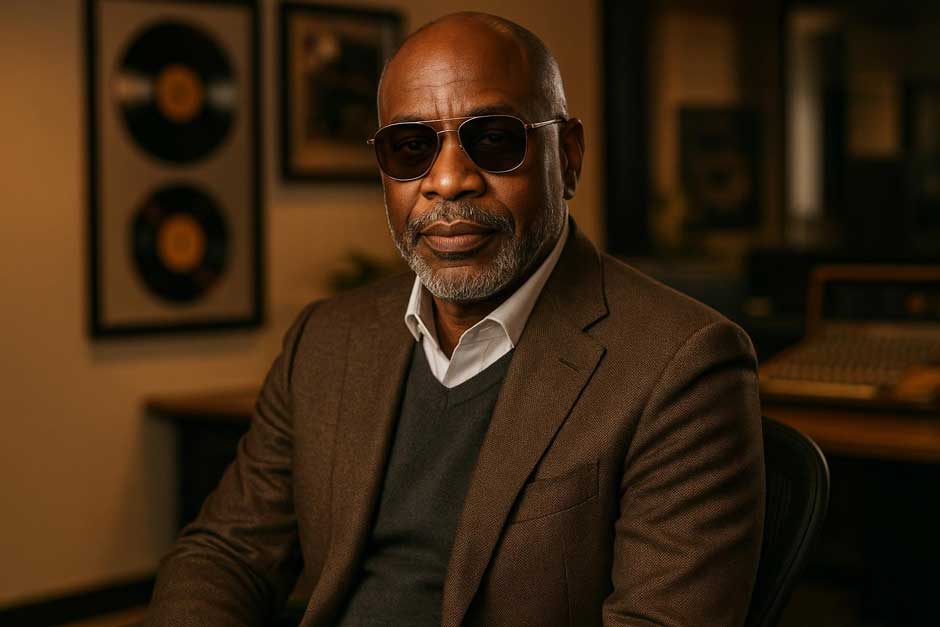Benzino Net Worth: The Rise and Fall of a Hip-Hop Media Mogul

When you think about hip-hop moguls who’ve seen both incredible highs and devastating lows, Raymond Scott—better known as Benzino—stands out as one of the most fascinating cases. His current net worth sits somewhere between $400,000 and $1 million in 2024, which might surprise people who remember his glory days as a media powerhouse.
Back in the day, Benzino wasn’t just another rapper trying to make it big. He was the guy behind The Source magazine, the publication that basically decided which albums were worth your money. But life has a funny way of throwing curveballs, and his journey from media mogul to reality TV star tells a story that’s equal parts inspiring and cautionary.
What makes Benzino’s financial story so compelling isn’t just the numbers—it’s how those numbers reflect the wild ride that is the entertainment business. One day you’re calling the shots at hip-hop’s most influential magazine, the next you’re dealing with family drama on national television.
From Boston Streets to Hip-Hop Dreams
Raymond Scott came into this world on July 18, 1965, in Boston, Massachusetts. His family background reads like a cultural melting pot—his dad Edward DeJesus brought Puerto Rican and African-American heritage to the table, while his mom Mary Scott added Cape Verdean and German roots to the mix.
Growing up in Boston during the 1980s meant witnessing hip-hop’s explosive growth firsthand. The city’s music scene was buzzing with energy, and young Raymond soaked it all up. His sisters Maureen and Anita Scott-Wilson watched as their brother became increasingly obsessed with this new cultural movement that was taking over urban America.
The moment that changed everything? Watching “Wild Style” in 1983. That movie didn’t just entertain Raymond—it lit a fire under him. Here was proof that hip-hop wasn’t just music; it was a whole culture with endless possibilities for creative and financial success.
His first real taste of the music business came through The Almighty RSO. Going by “Raydog” back then, he learned the ropes of an industry that was still figuring itself out. Those early days in Boston’s underground rap scene taught him lessons about hustle, creativity, and the harsh realities of trying to make money in music.
Building a Solo Career That Actually Paid the Bills
When Benzino dropped “The Benzino Project” in 2001, he wasn’t some rookie stepping into the studio for the first time. This was a guy who’d spent years watching the industry from the inside, learning what worked and what didn’t.
The album didn’t exactly set the charts on fire, but it did something more important—it established Benzino as someone who could hold his own as a solo artist. “Redemption” followed in 2003, then “Arch Nemesis” in 2005, each one building his reputation brick by brick.
What really kept the money flowing was his collaboration work. “Doomsday: Forever RSO” with The Almighty RSO in 1996 showed he could work well with others, while “Classic Limited Edition” with Made Men in 1999 proved he wasn’t locked into just one style.
Here’s something most people don’t realize about the music business: album sales are just the beginning. Benzino’s catalog continues generating royalty checks today through streaming platforms like Spotify and Apple Music. It’s not making him rich, but those monthly payments add up over time.
The real money often comes from production work, and Benzino knew this. His involvement with the Hangmen 3 production team opened doors to behind-the-scenes income that many artists never tap into. Producers get paid every time their beats get used, and those rights can be worth serious money over the long haul.
The Source Magazine: Where Real Money Was Made
If you want to understand how Benzino built real wealth, you need to understand what The Source magazine meant to hip-hop culture. Co-founding this publication with David Mays wasn’t just a business move—it was like becoming the gatekeeper of an entire genre.
The Source called itself the “Bible of Hip-Hop,” and honestly, that wasn’t just marketing hype. During the 1990s, if The Source gave your album five mics, you were basically guaranteed gold status. If they gave you two mics, you might as well start planning your day job comeback.
Benzino wasn’t just some silent partner collecting checks. He was in the trenches, shaping editorial decisions and helping create that famous five-mic rating system that could make or break careers. Think about the power that represents—record labels were literally paying premium advertising rates just to get their artists in front of The Source’s readers.
The magazine business, when it’s working, is basically a money-printing machine. You’ve got subscription revenue coming in monthly, newsstand sales, advertising dollars from record labels, and special edition issues that fans will pay extra for. During its peak years, The Source was pulling in serious revenue from all these streams.
But here’s where things get complicated. Benzino’s exit from The Source in 2005 marked the beginning of his financial decline. The circumstances around his departure meant he probably didn’t get the full value of what he’d helped build. When you’re forced out of a successful business, you rarely get to negotiate from a position of strength.
Reality TV: A Second Act That Paid Different Bills
When Benzino showed up on VH1’s “Love & Hip Hop: Atlanta” in 2012, some people thought he was selling out. But here’s the thing about reality TV—it pays real money, and it keeps you relevant when your other ventures aren’t working out.
The show was perfect for someone like Benzino. His personality, his relationships, his business drama—it all translated perfectly to reality TV. Viewers couldn’t get enough of his on-screen chemistry with Karlie Redd, and the producers knew they had gold on their hands.
Reality TV money works differently than music or publishing money. You get paid per episode, plus bonuses for reunion shows and special appearances. If you’re smart about it, you can parlay that visibility into endorsement deals, club appearances, and social media partnerships.
His relationship with Althea Heart became another storyline that kept him on screen and kept the checks coming. When they appeared on “Marriage Boot Camp,” that was another payday and another way to stay in the public eye.
The thing about reality TV is that it’s not going to make you wealthy like owning a successful magazine might, but it can provide steady income when your other ventures are struggling. For Benzino, those TV appearances probably kept him financially afloat during some tough years.
Business Ventures: Swinging for the Fences
Benzino understood something that many entertainers miss: you can’t rely on just one income stream. His business ventures show a guy who was always looking for the next opportunity, even if they didn’t all pan out.
Benzino Recordings made sense as a natural extension of his music career. Having your own label means keeping more of the profits when your artists succeed, plus you maintain control over the creative process. Independent labels can be goldmines if you know how to develop talent and navigate distribution deals.
ZNO Publishing was an even smarter move. Music publishing is where the real long-term money lives in the music business. Every time someone plays, samples, or licenses one of your published songs, you get paid. It’s the gift that keeps on giving, sometimes for decades.
The seafood restaurant chain was his biggest swing outside of entertainment. Restaurant ownership can be incredibly lucrative, but it’s also one of the riskiest businesses you can get into. The failure rate is brutal, and even successful restaurateurs will tell you it’s not for the faint of heart.
Hip Hop Weekly magazine represented an attempt to recapture The Source magic, but the magazine industry was already changing by then. Print circulation was declining, advertising revenue was shifting to digital platforms, and the whole business model was under pressure.
When Controversies Cost Real Money
You can’t talk about Benzino’s net worth without addressing the controversies that have cost him both money and opportunities. The entertainment industry is unforgiving when it comes to public relations disasters, and Benzino has had his share.
The Eminem feud that started in 2002 over The Source’s rating of “The Eminem Show” became one of hip-hop’s most talked-about conflicts. While it generated massive publicity, it also created industry tensions that probably cost Benzino business opportunities down the line.
The 2014 shooting incident at his mother’s funeral was a personal tragedy that also had financial implications. Medical bills, legal fees, and the emotional disruption of such events inevitably impact someone’s ability to focus on building wealth.
Legal troubles have a way of adding up quickly. Drug possession charges in 2017, various arrests for traffic violations and property damage—each incident means more attorney fees, court costs, and potential settlements. Those expenses can drain a bank account faster than most people realize.
The restraining order situation with Althea Heart created additional legal costs while potentially limiting his television opportunities. Reality TV contracts often include morality clauses that can affect your compensation when you’re dealing with legal issues.
Where Things Stand Today
As we look at Benzino’s financial situation in 2024, it’s clear that his current net worth of $400,000 to $1 million represents both resilience and missed opportunities. That’s still substantial personal wealth by most people’s standards, but it’s probably a fraction of what he controlled during his peak years.
His daughter Coi Leray’s success in the music industry adds an interesting wrinkle to his current situation. While their relationship has had its public ups and downs, her rising star power could potentially create new opportunities for collaboration or business ventures.
These days, Benzino keeps a much lower profile than during his reality TV heyday. That might be strategic—sometimes stepping back from the spotlight allows you to rebuild relationships and explore business opportunities without constant media scrutiny.
The entertainment industry has changed dramatically since Benzino’s peak years. Streaming platforms, social media influence, and new distribution models have created opportunities that didn’t exist when he was building The Source. His industry experience and connections could still prove valuable in this new landscape.
Current income probably comes from a mix of music royalties, occasional TV appearances, and whatever business ventures have survived the various challenges of recent years. The key to maintaining and growing his net worth will be finding stable, sustainable income sources that don’t depend on constant public attention.
Benzino’s story offers lessons for anyone trying to build wealth in entertainment. His success with The Source shows what’s possible when you identify and capitalize on cultural trends. His subsequent challenges illustrate how quickly things can change when personal decisions and external circumstances collide with business interests.
The entertainment industry loves comeback stories, and Benzino’s extensive experience gives him tools that many newcomers lack. Whether he can leverage that experience into renewed financial success remains to be seen, but his journey so far proves that in entertainment, the only constant is change.


